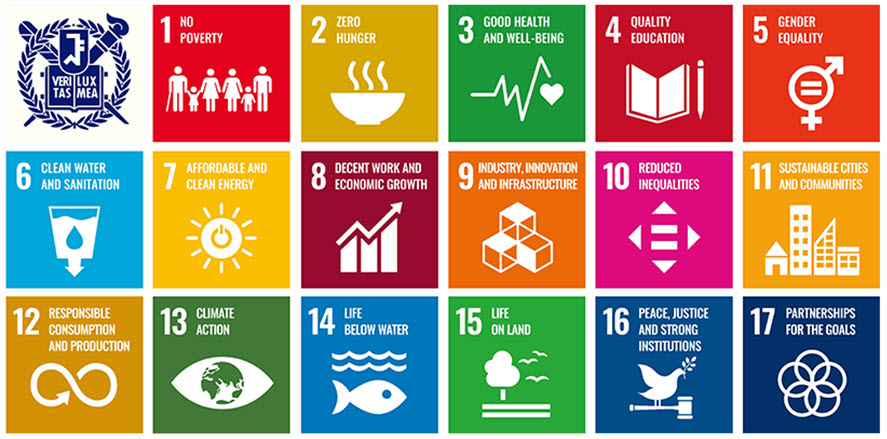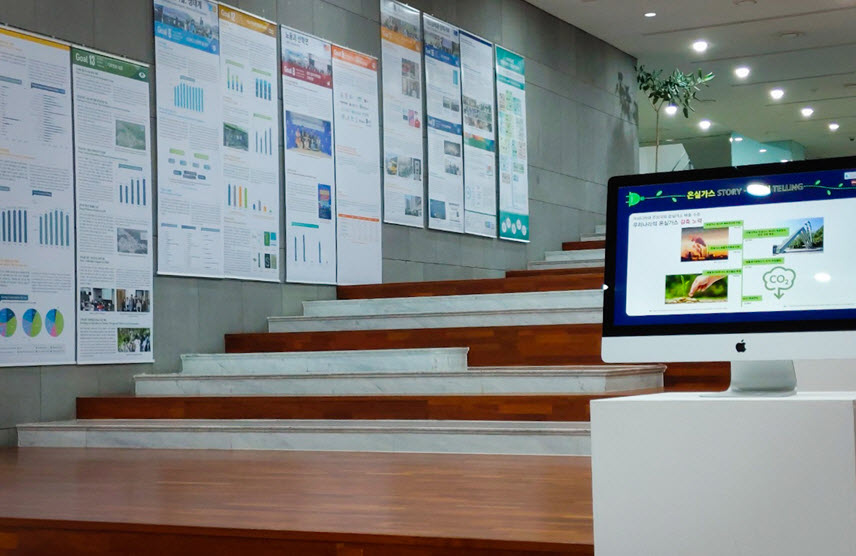Sustainability is one of the most important watchwords of our times. Due to aggravating problems regarding the quality of life of future generations, such as global warming and income inequality, the United Nations initiated its Sustainable Development Goals (SDGs) in 2016. The plan consists of 17 main goals that address environmental, socioeconomic, medical, educational, and gender issues prevalent across the globe. Seoul National University has also complied with these SDGs, launching the Institute for Sustainable Development (ISD) in 2009.

The 17 Sustainable Development Goals (SDGs) initiated by United Nations
In order to bring attention to its efforts to realize the SDGs within the university, the ISD, with assistance from SNU Library, is hosting the “UN SDGs and Seoul National University” exhibition. The exhibition showcases SNU’s commitment to each of the 17 SDGs. Among them, these are three SDGs with which SNU has shown impressive movements: the cessation of poverty, reduction of inequalities, and sustainable consumption and production.
Goal 1: No Poverty
Poverty has the utmost importance among all the SDGs, as it signifies the loss of human dignity. In order to make poverty come to an end, SNU has also striven to provide assistance to low-income students. For instance, low-income students are given the first order of priority when applying for residence in the university dormitory, and the Kind Scholar scholarship is granted to all students whose household income is lower than half of the national median income. In the fall semester of 2019, 17.2 percent of those attending the university were given scholarships, a 3.7 percentage point increase from Spring 2019. Furthermore, students such as those with disabilities or North Korean backgrounds can apply to the university through a special admission process promoting equal opportunity.

UN SDGs and Seoul National University Exhibition in SNU Library
Goal 10: Reduced Inequalities
In addition to reducing poverty, the alleviation of social inequality is a major concern of the UN, and SNU has been taking steps in this direction as well. In 2000, SNU established the Student with Disabilities Support Center, making it the first Korean university to have a center addressing the needs of disabled students. In 2012, SNU opened its the Human Rights Center, a central office for human rights education, and for addressing human rights violations such as sexual harassment within the university. Finally, SNU founded the Diversity Committee in 2016, another first among Korean universities. The Committee publishes an annual diversity report, and monitors whether SNU gives adequate consideration to diversity during its recruitment and promotion processes.
Goal 12: Responsible Consumption and Production
Another goal of the UN is the alleviation of global warming through the responsible utilization of our planet’s natural resources. SNU has acknowledged its responsibility to reduce the amount of waste, and the regular and recyclable waste of the university in 2019 was down 7.4 percent from the previous year. To supervise energy consumption and greenhouse gas emissions on campus, the university annually publishes the “Seoul National University Green Report,” which can be downloaded from the ISD website.
The exhibition takes place on the second floor of the Kwanjeong Library, and it lasts from September 1 to December 31 of this year. The rest of 17 SDGs and further details can be found on the SNU ISD website (https://isd.snu.ac.kr/isd/eng_index.php).
Written by Seunghwan Oh, SNU English Editor, ascendhwan@snu.ac.kr
Reviewed by Professor Travis Smith, Department of Asian Languages and Civilizations, tlsmith@snu.ac.kr

